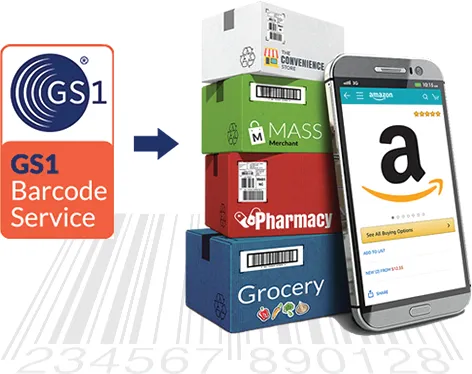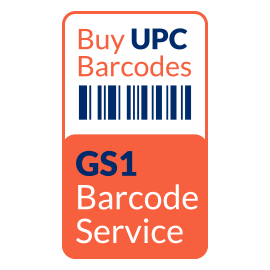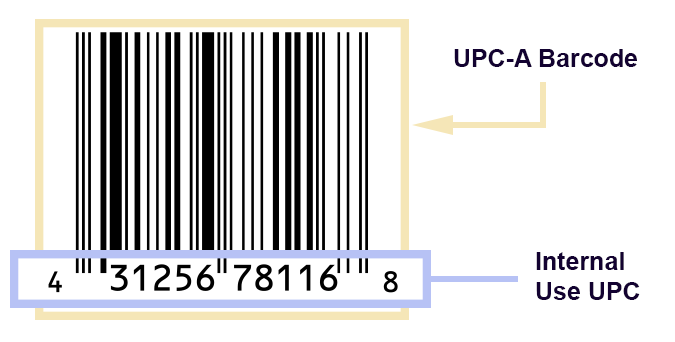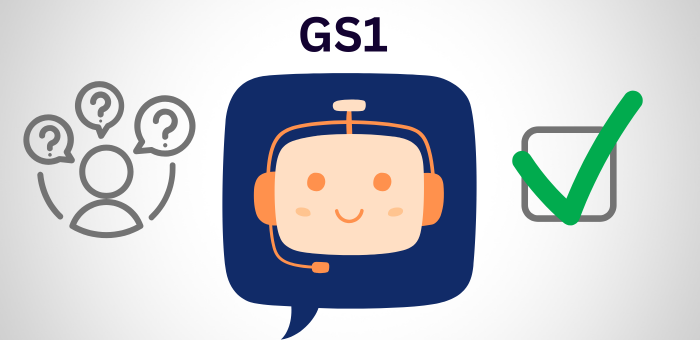In today’s global marketplace, retailers and online marketplaces, such as Amazon, require a unique identifier to be assigned to every product. Unlike a supplier’s proprietary part number, the required identifier needs to be globally unique and adhere to a worldwide standard. For the United States, this product identifier is the UPC barcode (GTIN-12). This informational website is the starting point to understanding the importance of a brand-licensed U.P.C. Company Prefix and how to avoid mistakes that can derail your company’s success.
Estimate How Many Barcodes
As a general rule, every product and variation of your product will need its own GTIN (UPC). While it’s expensive to have excess, it is also expensive to make mistakes. Careful consideration of how many UPCs need to be assigned and how your needs may change will help you select the right option.
Apply at BARCODE US To Establish GTIN.cloud® account
Access to GTIN.cloud® enables members to completely manage their GTIN assignments, create high-resolution barcodes, and control their associated product data. More importantly, an assigned personal GS1 Barcode consultant will not only assist with any and all questions but will validate entered product information BEFORE publishing.
License UPC Company Prefix/GTINs
If you want your products to be available to global retailers and Amazon, it is imperative to have your UPCs (GTINs) licensed in your company (brand) name directly from the global standards organization. Their roles are to set the guidelines and administer Company Prefixes and GTINs.
Assign UPC/GTINS and Create Barcodes on GTIN.cloud®
The GTIN management function enables companies to assign and activate their GS1 GTINs, associate product data attributes, upload image links, and create digital .eps (printer-ready) barcode files. All entered UPC product data is personally validated by an assigned GS1 consultant before a UPC is published. Since GS1 prohibits the reuse of GTINs, it is crucial that UPC assignments and product information are done correctly the first time.
With the GS1 Barcode Service, you will be assigned a certified GS1 Barcode Consultant who can assist with GTIN assignments and also validate all provide UPC product data before it is published to databases. For immediate assistance, please call us at 888-540-6885 or click on the chat button below. UPC barcode mistakes can be quite costly if not properly implemented. With your company’s success on the line, it is important to properly identify your products.
Step 1: Estimate Number of Barcodes Needed
The Only Source For Certified GS1 Support & Barcodes
Do not risk. your company’s success on discounted unlicensed resellers. Brand-licensed UPC barcodes enable your products to be sold globally.
Trusted Authority
Since the inception of the UPC, we have been the leading source for barcodes.
GTIN.cloud Portal
Central repository for managing GTINs assignments and product data.
Personal Support
One year of personal support from an assigned certified GS1 barcode consultant.
Immediate Delivery
GTIN assignments and barcodes provided immediately after licensing.
Retailer Barcode Requirements
Over the past 50 years, point-of-sale UPC barcodes have become a necessity for retailers and online marketplaces. Each unique UPC barcode identifier enables retailers to track sales, manage inventory, and place re-orders from their suppliers. As consumers’ appetite for product data has grown, the need for trusted identifiers and data has magnified.
Where you intend on selling your products will dictate how you should go about obtaining barcodes for your products. GTINs can be obtained through the global standards office, purchased from a 3rd party UPC reseller, or assigned internally. Use the following information to select the best source based on what the UPC will be used for and which trading partners might be requiring them.
| UPC used for: | GS1 Global Standards | 3rd UPC Resellers | Internally Assigned |
|---|---|---|---|
| Products being sold by national retailers such as; Amazon, Walmart, Kroger, The Home Depot, CVS, Target and JC Penney. | ✔ | ✖ | ✖ |
| UPCs (GTINs) to be used by Amazon Vendor Central or Amazon Seller Central. | ✔ | ✖ | ✖ |
| GS1 licensed GTINs can have ownership authenticated by trading partners on Verified by GS1 and on GTIN.cloud. | ✔ | ✖ | ✖ |
| Items being sold by local stores and certain regional retailers. | ✔ | ✔ | ✖ |
| Products being sold to a distributor under their label. | ✔ | ✔ | ✖ |
| iTunes and Spotify or music titles. | ✔ | ✔ | ✖ |
| Items being sold on your own website, or used internally to support accounting or internal POS system. | ✔ | ✔ | ✔ |
| Apply Now | Learn More |
GS1 Global Standards
The safest and recommended way to get barcodes is through GS1 barcode service, which includes GTINs licensed to your company (brand). GS1 is the global standards organization that governs the specifications and administers licensing of unique identifiers. The local GS1 office offers individual GTIN assignments and Company Prefixes for blocks of GTIN identifiers, depending on how many are needed.
Benefits of using GS1 GTINs
- GS1 licensed GTINs are acceptable at any retailer around the globe.
- UPC barcodes licensed by GS1 are registered to your company (brand)
- Retailers and marketplaces (Amazon) use tools, such as GTIN.cloud and Verified by GS1 to authenticate GTIN ownership.
- GS1 offers paid certifications and classes enabling companies to understand GTIN barcode requirements.
Disadvantages of GS1 GTINs
- The fee for obtaining GS1 GTINs and Prefixes is based on the total number of unique items and can be expensive.
- Companies with Company Prefixes for 10 or more GTINs are required to pay an annual renewal fee for continued licensing.
- Complex registration and GTIN management processes.
- Basic GS1 licensing fees do not include GTIN support, so additional GS1 Barcode Support subscriptions are required, if companies do not invest in certification classes.
Since GS1 does not provide the actual certified print-ready digital barcodes nor support, members need to subscribe to GS1 Barcode Support programs (barcodes provided) or use UCC/GS1 certified software to generate .eps barcodes (createbarcodes.com).
3rd Party UPC Resellers
UPC Resellers are privately owned for profit companies that sell UPC Numbers which were originally assigned by the Uniform Code Council (UCC) before 2001. These companies are not regulated so prospective buyers need to assess the legitimacy of the offering and if they safeguards to protect their assignments.
Most national retailers, including Amazon, Wal Mart, Kroger, Target, The Home Depot and several others explicitly prohibit the use of UPCs obtained from UPC resellers.
How 3rd Party UPC Resellers Originated
Prior to 2001, UPCs were administered by the Uniform Code Council (UCC). The UCC then merged into a local office of GS1 Global. Leveraging their position, the GS1 US instituted an annual fee to maintain Company Prefixes.
Original UCC members responded by filing a Class Action lawsuit against the GS1. The case was brought to the US Supreme Court and a hefty settlement reached and an acknowledgement that UPCs assigned prior to 8/28/2002 were not subject to GS1 annual fees. Since there was no documentation in the original UPC Certificates limiting the transferability of UPCs, a gray market of 3rd party UPC reseller industry was born.
It is important to note that many of the online offerings provide inaccurate and misinformation. Buyers should understand the risks prior to purchasing.
Benefits of using 3rd Party UPC Resellers
- No annual renewal fees
- Very low prices
- No registration or product upload of data required
Disadvantages of 3rd Party UPC Resellers
- Amazon, Walmart, Kroger, The Home Depot and several other retailers require UPCs directly from the GS1
- UPCs purchased from a reseller share a common UPC Prefix and can be hijacked or used by another company.
- Many resellers are not reputable businesses who are aggressively trying to exploit companies needing UPC barcodes.
- Due to the lack of legal jurisdiction – there’s no way to prevent UPC Numbers sold by a UPC Reseller, from being used by another company.
Last note, Amazon requires UPCs obtained directly from the GS1 and explicitly states UPCs from a third-party reseller are not acceptable and may cause your entire Amazon Account to be suspended.
Internally Assigned UPC Numbers
UPC-12 numbers that begin with a 4 as the first digit are designated as Internally assigned UPCs and can ONLY be used within the organization that organization’s own supply chain.
Some retailers such as Costco assign UPCs which begin with a 4 for their own private brand items such as Kirkland which is exclusively sold by Costco.
Benefit of using Internal UPC Numbers
- Aside from maintaining an internal database, there are zero costs
Disadvantage of using Internal UPC Numbers
- They are only valid for use within your own supply chain and cannot be used by other stores, or distributors. Do not use internally assigned UPCs outside of your organization
We Are Here To Help!
Please contact us at 888.540.6885 or chat with us online If you would like to set up a call with a consultant for assistance, please use the button below.








